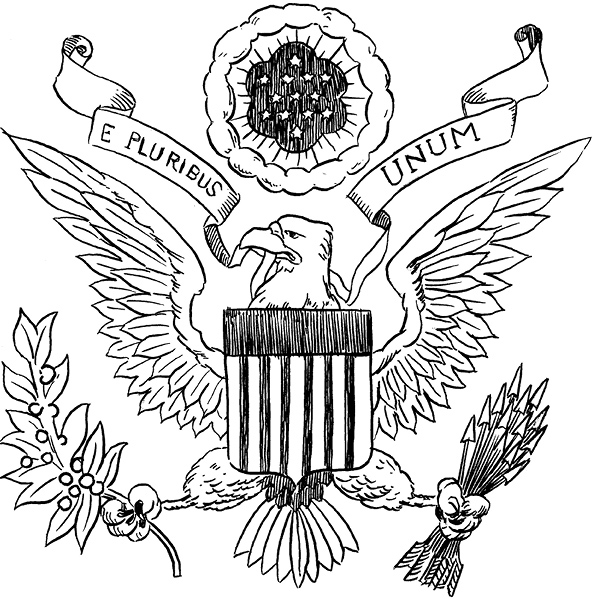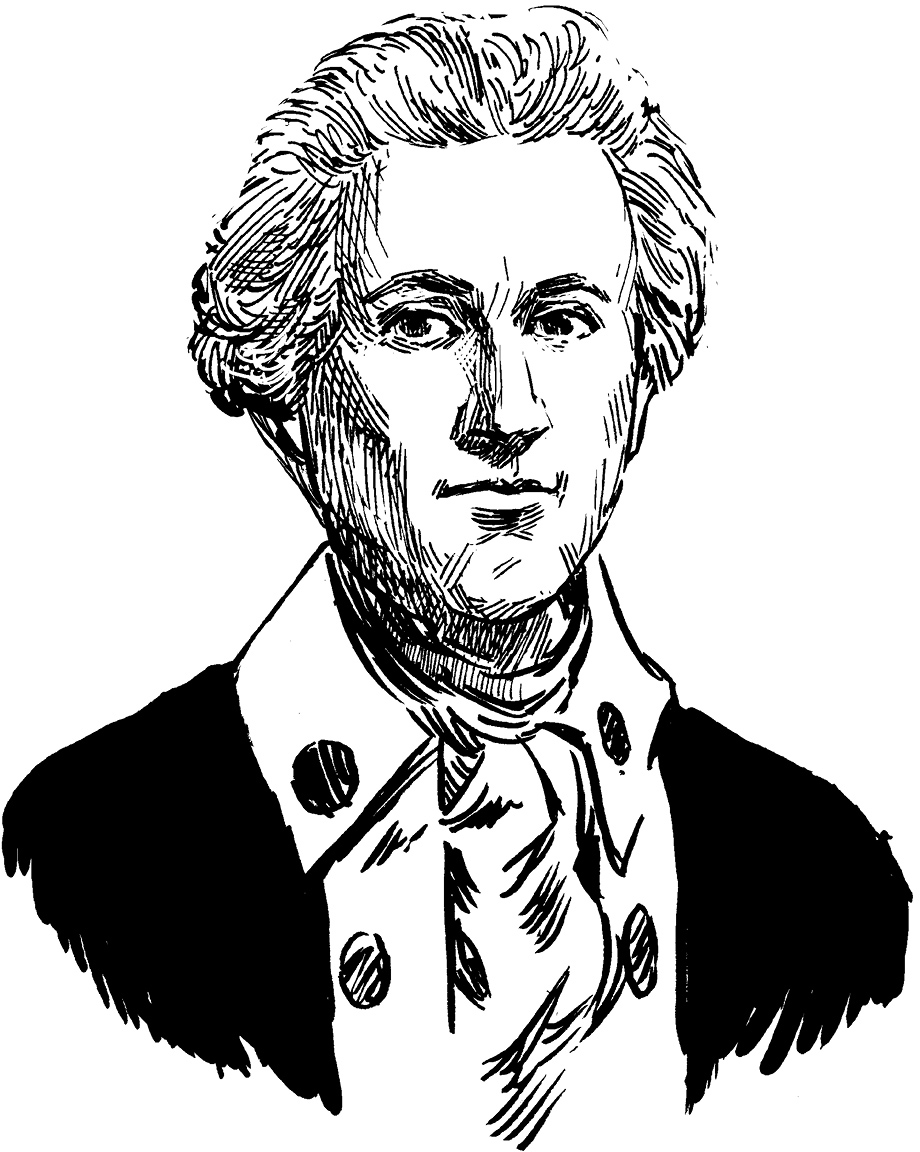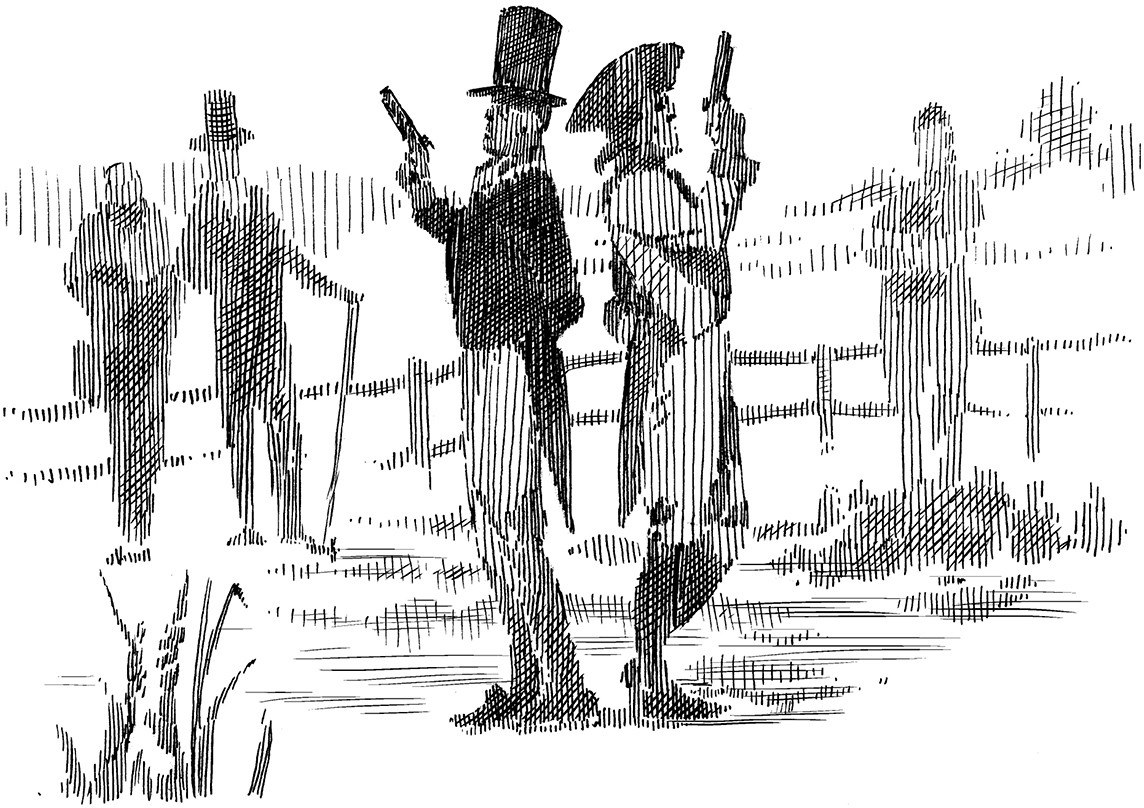CHAPTER 4
From Lawyer to Leader
Andrew Jackson became a success in Nashville. He saved enough money to buy a plantation just outside of Nashville. A plantation was a large farm. The Jacksons’ was called the Hermitage. The fields of the Hermitage were planted mainly with cotton. Selling cotton made a lot of money, but growing it took a lot of work.


Like many other successful farmers in the South, Jackson owned slaves. Living in small quarters near the Hermitage, these black men and women were forced to do the farming. Life was horrible for slaves. As to how harsh a master Andrew Jackson was, there is very little information. After his death, one slave said she had been shown kindness. He bought medicine when needed and tried not to separate mothers from their children. But for others, there were public whippings—extra whippings of one hundred lashes for slaves who escaped and then were recaptured.
Jackson was a businessman, and thought about slaves the same way he did the animals on his farm. He took care of them so that they stayed in good enough shape to work. As the Hermitage became more successful, he bought more slaves. At one point there were nearly 150 enslaved black men, women, and children on the plantation.

As a well-known lawyer and plantation owner, Jackson was now held in great respect. People called upon him to make decisions about local laws and disputes. Slowly, Andrew Jackson was being drawn into politics.
In 1796, Tennessee became a state. Like every other state, Tennessee had its own constitution—a group of laws about what was legal within the state. Andrew proudly joined the convention where Tennessee’s constitution was written.

Federal versus State Laws

Statehood meant that Tennessee would now be represented in the US Congress. There would be two senators from Tennessee and one member in the House of Representatives. Andrew, now twenty-nine, hoped to be elected to the House. And he was.
Jackson’s new job required traveling back and forth from Tennessee to the nation’s capital. (At the time, the United States capital was Philadelphia, not Washington, DC.) It took more than forty days to make the journey by horse.

Andrew missed Rachel very much and Philadelphia was not to his liking. So he resigned from Congress after only a few months. Then, just a year later, friends convinced him to run for the US Senate. Once again, he won the election—but once again, he resigned after only a year to be home with Rachel. Throughout his life, Andrew was torn between using his talents to serve his country and his desire for a peaceful life with his wife.

Instead of national politics, Andrew decided to run for office in Nashville as a state judge, and popular as ever, he won. As a judge, Jackson was tough but fair. He was still known for his fiery temper. Once, during a trial, a man with a knife and a gun threatened to kill Judge Jackson. The sheriff tried to arrest him, but he escaped from the courthouse. Andrew grabbed his own pistol and chased the man down. He shouted, “Surrender, you infernal villain, this very instant, or I’ll blow you through.” The man surrendered.

People respected his bravery and depended on him for protection. Jackson liked this. He had never forgotten the pride he felt helping the cause of the Revolution. He still wanted to serve his fellow citizens as a soldier. So in 1802, he decided to run for major general of the Tennessee militia. The militia was a small state army that reported to the US Army.

John Sevier
The man he ran against was named John Sevier. The result of the election was a tie. The governor of Tennessee broke the tie by appointing Jackson. From that moment on, Sevier and Jackson were enemies. It wasn’t long before Jackson challenged Sevier to a duel. On the day of the fight, however, friends managed to stop them before anyone got shot.

Charles Dickinson
Another duel did not end so well. A man named Charles Dickinson insulted Rachel. Jackson insisted on a duel to defend her honor. Both men fired their pistols. Dickinson shot first. Jackson fired back and killed him. But Andrew had been seriously wounded. He was shot near his heart. The bullet did not kill him, but it remained there for the rest of his life.

Rules of a Duel

